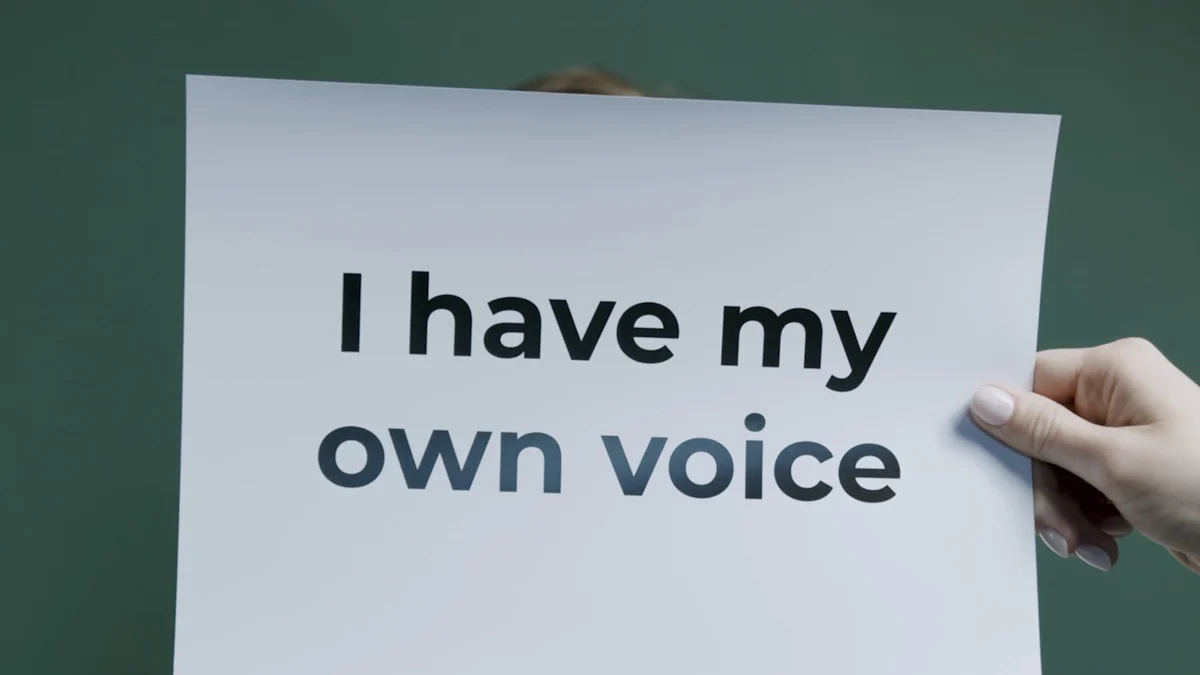Screenwriting
Developing Your Unique Voice as a Screenwriter
By
Alex Darke
July 23, 2024 10:51 pm
Every screenwriter needs a unique voice. A distinct voice sets scripts apart from the crowd. Many screenwriters struggle to develop screenwriting voice. The journey involves self-discovery and persistence. Embrace the process. Celebrate each step.
Understanding Your Unique Voice

Image Source: pexels
What is a Unique Voice?
Definition and significance
A unique voice in screenwriting means expressing a distinct worldview and style. This voice sets scripts apart in the crowded industry. A unique voice captures the writer's personality, experiences, and perspectives. The audience connects with authenticity and originality.
Examples of screenwriters with unique voices
Quentin Tarantino stands out with his sharp dialogue and nonlinear storytelling. Greta Gerwig brings heartfelt, character-driven narratives to life. Jordan Peele blends horror with social commentary, creating a unique genre mix. These screenwriters have carved niches through their distinctive voices.
Self-Reflection and Personal Experiences
Analyzing your own life experiences
Personal experiences shape a screenwriter's voice. Reflect on pivotal moments and emotions. These experiences provide rich material for storytelling. Authenticity resonates with audiences.
Identifying themes and patterns in your writing
Review past works to identify recurring themes and patterns. Themes might include love, loss, or redemption. Patterns could involve specific character types or settings. Recognizing these elements helps refine and develop screenwriting voice.
Influences and Inspirations
Studying other screenwriters and filmmakers
Study the works of admired screenwriters and filmmakers. Analyze their techniques and styles. Learn from their successes and mistakes. This study broadens understanding and sparks creativity.
Drawing inspiration without imitation
Draw inspiration from various sources without copying them. Blend influences with personal experiences. Create something fresh and original. This approach ensures a unique voice that stands out.
Techniques to Develop Your Screenwriting Voice

Image Source: unsplash
Writing Regularly to Develop Screenwriting Voice
Establishing a writing routine
A consistent writing routine helps develop screenwriting voice. Set aside specific times each day for writing. Treat this time as sacred. Consistency builds discipline and hones skills. Over time, the unique voice will emerge more clearly.
Experimenting with different genres and styles
Experimentation plays a crucial role in finding a unique voice. Write in various genres. Try comedy, drama, horror, and sci-fi. Each genre offers new challenges and opportunities. Different styles also help in discovering what feels most natural. The process of experimentation enriches the writing palette.
Feedback and Revisions
Seeking constructive criticism
Feedback from others provides valuable insights. Share work with trusted friends or fellow writers. Seek out honest, constructive criticism. This feedback highlights strengths and areas for improvement. Use these insights to refine the unique voice.
Iterating and refining your work
Revisions are essential in the writing process. Iterate on drafts multiple times. Each revision brings the script closer to perfection. Focus on clarity, coherence, and originality. The unique voice becomes more distinct with each iteration.
Embracing Authenticity
Writing from the heart
Authenticity resonates with audiences. Write from personal experiences and emotions. Pour genuine feelings into characters and plots. Authentic writing connects deeply with readers. This connection makes the unique voice stand out.
Avoiding clichés and stereotypes
Clichés and stereotypes dilute originality. Avoid them to maintain a fresh perspective. Create complex, multi-dimensional characters. Craft unique plots that defy expectations. This approach ensures the voice remains distinct and compelling.
Overcoming Common Challenges
Dealing with Self-Doubt
Building confidence in your voice
Every screenwriter faces self-doubt. Confidence comes from practice and persistence. Write regularly to develop screenwriting voice. Each script builds skills and strengthens voice. Celebrate small victories. Completing a scene or finishing a draft boosts morale. Remember that every writer started somewhere. Even the greats faced rejection and doubt. Keep pushing forward.
Strategies to overcome imposter syndrome
Imposter syndrome plagues many writers. Acknowledge these feelings but don't let them control you. Focus on your unique perspective. No one else can tell your stories. Surround yourself with supportive peers. Join writing groups or attend workshops. Feedback from others helps build confidence. Remember, everyone struggles at times. Persistence and resilience are key.
Balancing Market Demands and Personal Style
Understanding industry trends
The film industry constantly evolves. Stay informed about current trends. Read industry blogs and watch popular films. Attend film festivals and network with professionals. Understanding trends helps tailor your scripts for the market. However, don't lose sight of your unique voice. Trends come and go, but a strong voice endures.
Staying true to your voice while being marketable
Balancing personal style with market demands poses a challenge. Blend your unique voice with elements that appeal to audiences. Create compelling characters and engaging plots. Avoid clichés and stereotypes. Authenticity resonates with viewers. Experiment with different genres and styles. This experimentation helps you find a balance. Remember, a unique voice makes your script stand out.
"Experimenting with different literary styles and techniques helps find your unique voice." - Various Screenwriters
Develop screenwriting voice by blending personal experiences with industry knowledge. Embrace the journey and keep writing. Your unique voice will shine through.
Developing a unique voice as a screenwriter holds immense importance. A distinct voice can transform scripts into memorable stories. Aspiring professional screenwriters emphasize that nurturing this voice creates authentic and compelling narratives.
Continue exploring and refining your voice. Experiment with genres and styles. Write regularly and seek feedback. Embrace the journey of self-discovery.
"In a highly competitive marketplace, anything extra you can add to your script to stand out is a good thing." - Final Draft Blog
Embrace individuality. Your unique voice will become your calling card. Celebrate your distinct perspective. Keep writing and let your voice shine.

About the Author
Alex Darke is an Emmy-winning filmmaker, founder of the production company Momentous and owner of Filmmaking Central.

Filmmaking Central is a cutting-edge e-learning company dedicated to empowering aspiring filmmakers and content creators worldwide. With a robust library of comprehensive courses, expert-led workshops, and interactive learning materials, Filmmaking Central provides students with unparalleled access to industry professionals and innovative tools. By fostering an online community of passionate learners and storytellers, the platform aims to inspire creativity, develop essential skills, and ultimately cultivate the next generation of visionary filmmakers.
CONTACT
📍Las Vegas, NV
☎️ +1 888 494 5107
📧 hello@filmmakingcentral.com
SOCIAL
A Momentous Company © Filmmaking Central, All Rights Reserved. Here's our cookie policy page with all sorts of fun stuff. You know, privacy policy, disclaimer, and terms kind of stuff. Go back to the homepage or check out our courses and subscribe to our YouTube channel. You can also see our anti-SPAM policy, DCMA notice, earnings disclaimer, and affiliate disclosure.
